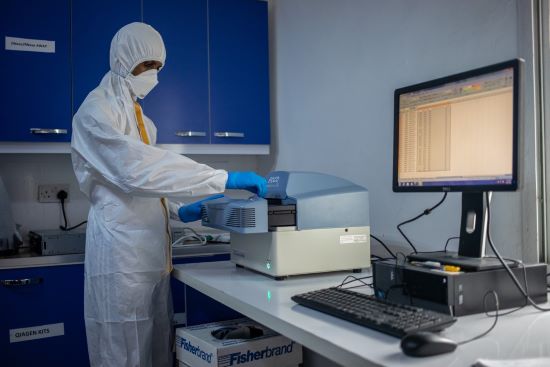
Mogadishu, 28 July 2023: The Federal Ministry of Health and the World Health Organization (WHO) country office in Somalia join together in commemorating World Hepatitis Day to increase awareness and understanding of viral hepatitis.
This year, the hepatitis campaign will be under the slogan of “One Life, One Liver” emphasizing the link between viral hepatitis infection and liver inflammation. In the WHO Eastern Mediterranean Region, a regional slogan, “Hepatitis medicines are cheaper now. Treat to save lives”, is also being used to highlight efforts to accelerate the elimination of hepatitis by ensuring that testing and treatment are available to those who need it the most. Although the Federal Ministry of Health, together with WHO and other partners, has made progress in improving access to hepatitis testing and treatment, the road towards elimination is a long one.
Hepatitis, a viral infection that primarily affects the liver and can cause lasting damage and inflammation, is a global health concern that particularly affects low- and middle-income countries, including Somalia. Limited resources, insufficient health care infrastructure and low awareness all contribute to high transmission rates and limited access to testing and treatment.
Globally, viral hepatitis B (HBV) and C (HCV) are responsible for 1.1 million deaths annually due to chronic liver disease and cancer, with almost 80% of cases going undiagnosed. Marginalized communities, including internally displaced persons (IDPs), are particularly vulnerable and tend to experience a greater disease burden.
In Somalia, limited data availability adds to the challenges of combating viral hepatitis. Most available data are from blood transfusion screenings, with recent data indicating a decline in seropositivity rates for HBV and HCV: HBV seroprevalence dropping from 4.6% in 2012 to 1.9% in 2021 and HCV from 0.42% to 0.09% during the same period. Despite this progress, 2.5 million people in Somalia are estimated to live with chronic HBV and HCV.
The National Hepatitis Programme Manager at the Federal Ministry of Health, Dr Aweiys Hersi Hashi, while acknowledging the critical support extended by the WHO country office in managing the disease burden of hepatitis in the country, including through blood transfusion screenings and integrating the HBV vaccine into childhood immunization schedules, says: “We are struggling to expand these services to every part of the country for which we will urge the partners to support WHO and the Ministry to expand the service to ensure the goals of universal health coverage in Somalia could be achieved.”
HIV treatment regimens also incorporate drugs effective against both HIV and hepatitis viruses, such as tenofovir and lamivudine, providing dual benefits for co-infected individuals. Dr Rogers Busulwa from the WHO country office emphasises that: “Collecting data is crucial for understanding the burden of viral hepatitis beyond blood donor populations. It is also critical to prioritize the prevention of mother-to-child transmission of hepatitis. There is significant potential to leverage the efforts of the HIV programme to support these efforts.”
During the COVID-19 pandemic, WHO established seven public health laboratories equipped with real-time polymerase chain reaction (PCR) technology, which has been instrumental in increasing national diagnostic capacity. In addition to SARS-COV-2, these laboratories can detect various pathogens, including hepatitis viruses. The utilization of PCR technology holds great potential for timely diagnosis and treatment of hepatitis, preventing complications and the spread of the virus.
The Federal Ministry of Health and WHO country office, together with partners, are working to achieve the global goal of eliminating viral hepatitis by 2030. To reach this goal, WHO supports the federal and state ministries of health in enhancing access to universal health coverage, including hepatitis testing, treatment and vaccines.
For additional information, please contact:
Kyle DeFreitas, External Relations Officer,
Fouzia Bano, Communications Officer,
Note to Editors:
Please see the link below for additional information on WHO’s response across Somalia:
Commemorating Zero Discrimination Day: reducing stigma against HIV/AIDS


